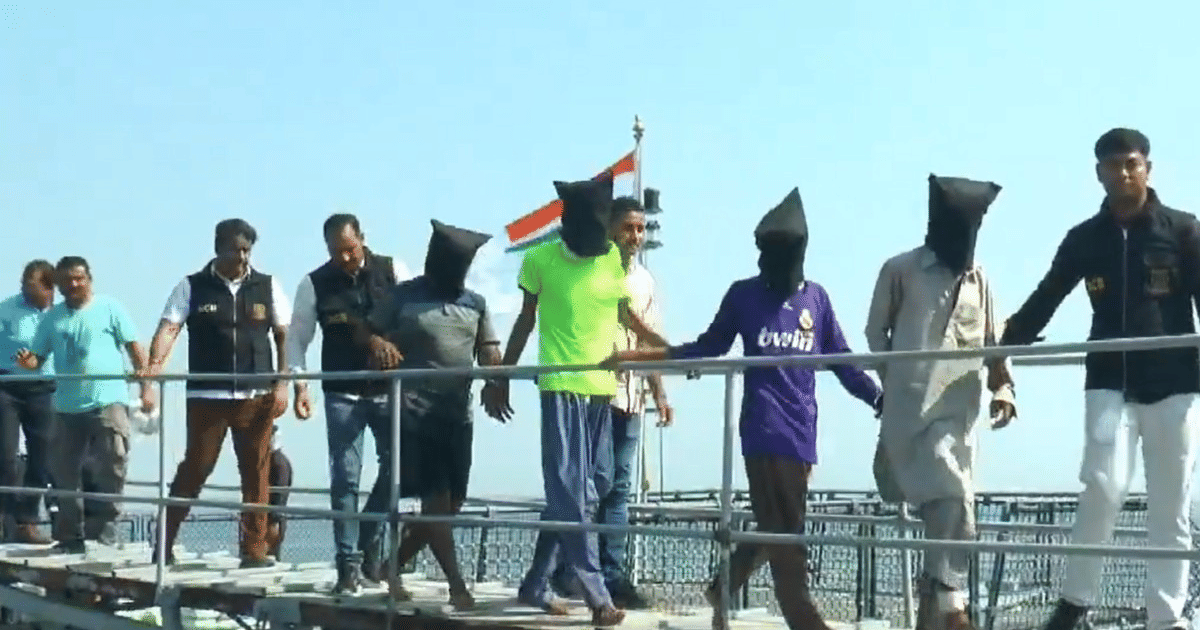 |
|
The Indian Coast Guard's recent seizure of approximately 5 tonnes of narcotics in the Andaman Sea marks a significant victory in the ongoing battle against drug trafficking in the region. This operation, announced on November 25th, is believed to be the largest drug haul in the Coast Guard's history, significantly surpassing previous seizures. The sheer scale of the operation underscores the persistent threat posed by transnational drug smuggling networks operating in Indian waters. The successful interception of the fishing boat carrying the illicit cargo demonstrates the effectiveness of enhanced surveillance and intelligence gathering capabilities deployed by the Coast Guard. The operation’s success is also a testament to the growing coordination and collaboration between various Indian agencies involved in combating drug trafficking. This collaborative approach, as highlighted by Union Home Minister Amit Shah, is crucial in dismantling complex and well-established smuggling networks.
The Andaman Sea seizure follows a previous significant operation, 'Operation Sagar Manthan 4,' which resulted in the seizure of 700 kilograms of methamphetamine and the arrest of eight Iranian nationals off the Gujarat coast. This earlier operation, spearheaded by the Narcotics Control Bureau (NCB), in collaboration with the Indian Navy and Gujarat Police’s Anti-Terrorist Squad (ATS), highlights the multi-pronged approach being adopted to combat drug smuggling. The use of intelligence-led operations is clearly crucial, allowing agencies to target specific vessels and networks involved in the illegal trade. This coordinated approach, leveraging the expertise and resources of multiple agencies, emphasizes a broader strategy beyond solely relying on coastal patrols. The success of these operations underscores the importance of information sharing and joint intelligence efforts in disrupting these transnational criminal organizations.
The sheer volume of drugs seized this year – exceeding 3,500 kilograms via maritime routes, leading to the arrests of numerous Iranian and Pakistani nationals – paints a concerning picture of the scale of the drug trade affecting India. However, it also showcases the heightened vigilance and proactive measures undertaken by Indian authorities. The arrests and ongoing trials of those involved demonstrate a commitment to pursuing prosecutions and disrupting the criminal networks responsible. The sustained efforts to combat drug trafficking, including increased patrols, improved intelligence gathering, and strengthened international cooperation, are essential to effectively counter the threat. The success of these operations sends a strong message to drug traffickers, deterring future attempts and disrupting existing operations. The financial implications of these seizures are also significant, with the illicit drug trade generating substantial revenue for criminal organizations. The disruption of these operations directly impacts their financial capabilities, undermining their capacity to operate.
The political implications of this success are also noteworthy. The public praise given by the Union Home Minister Amit Shah, highlighting the inter-agency collaboration, underscores the government’s commitment to tackling this issue. This public acknowledgment serves not only to celebrate the achievement but also to reassure the public about the government's resolve in combating this serious security threat. The success of these operations is likely to bolster public confidence in the government's ability to address this national security challenge. The seizure also reinforces the importance of ongoing investments in maritime security and intelligence gathering capabilities. Further advancements in technology and collaborative efforts with international partners will remain crucial in combating the ever-evolving tactics employed by drug smuggling organizations. The fight against drug trafficking is an ongoing battle, demanding constant vigilance and adaptation to the changing methods employed by criminal networks. The significant success of these recent operations provides a crucial stepping stone in this ongoing battle.
In conclusion, the record drug seizure by the Indian Coast Guard signifies a significant victory in the ongoing fight against drug trafficking. This success highlights the importance of inter-agency cooperation, enhanced intelligence gathering, and the commitment of Indian authorities to combat this critical threat. While the scale of the drug trade remains a concern, these seizures demonstrate the effectiveness of coordinated efforts in disrupting criminal networks and reducing the flow of illicit narcotics into the country. The continued investment in resources, technology, and international collaboration is essential to ensuring the long-term success of these efforts. The future of this fight lies in sustained commitment, proactive strategies, and a continued focus on disrupting the complex networks driving this illicit trade.
